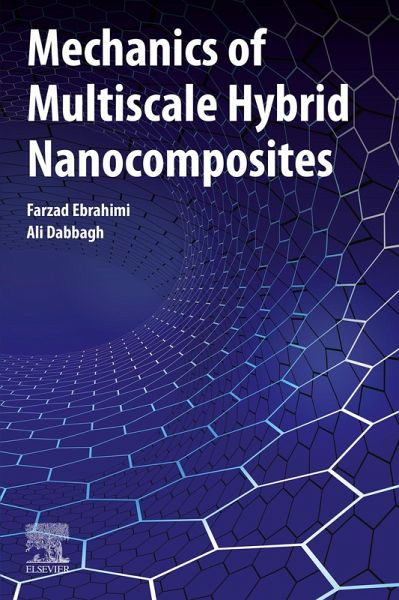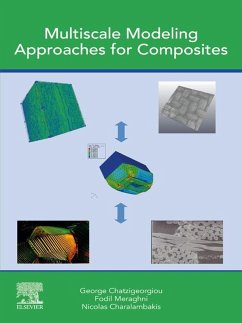
Mechanics of Multiscale Hybrid Nanocomposites (eBook, ePUB)
Versandkostenfrei!
Sofort per Download lieferbar
160,95 €
inkl. MwSt.
Weitere Ausgaben:

PAYBACK Punkte
80 °P sammeln!
Mechanics of Multiscale Hybrid Nanocomposites provides a practical and application-based investigation of both static and dynamic behaviors of multiscale hybrid nanocomposites. The book outlines how to predict the mechanical behavior and material characteristics of these nanocomposites via two-step micromechanical homogenization techniques performed in an energy-based approach that is incorporated with the strain-displacement relations of shear deformable beam, plate and shell theories. The effects of using various nanofillers are detailed, providing readers with the best methods of improving ...
Mechanics of Multiscale Hybrid Nanocomposites provides a practical and application-based investigation of both static and dynamic behaviors of multiscale hybrid nanocomposites. The book outlines how to predict the mechanical behavior and material characteristics of these nanocomposites via two-step micromechanical homogenization techniques performed in an energy-based approach that is incorporated with the strain-displacement relations of shear deformable beam, plate and shell theories. The effects of using various nanofillers are detailed, providing readers with the best methods of improving nanocomposite stiffness. Both numerical (Ritz, Rayleigh-Ritz, etc.) and analytical (Navier, Galerkin, etc.) solution methods are outlined, along with examples and techniques. - Demonstrates the influences of carbon nanotube agglomerates and wave phenomena on the constitutive modeling of three-phase hybrid nanocomposites - Analyzes nonlinear dynamic characteristics of hybrid nanocomposite systems, as well as how to monitor the system's stability via linearization technique - Discusses the stability of linear nanocomposite systems subjected to the dispersion of elastic waves and bending loads - Outlines how to design three-phase nanocomposite structures for resistance against buckling-mode failure - Instructs how to derive the governing equations of continuous systems in both linear and nonlinear regimes in the framework of various types of kinematic shell and plate theories
Dieser Download kann aus rechtlichen Gründen nur mit Rechnungsadresse in A, B, BG, CY, CZ, D, DK, EW, E, FIN, F, GR, HR, H, IRL, I, LT, L, LR, M, NL, PL, P, R, S, SLO, SK ausgeliefert werden.













